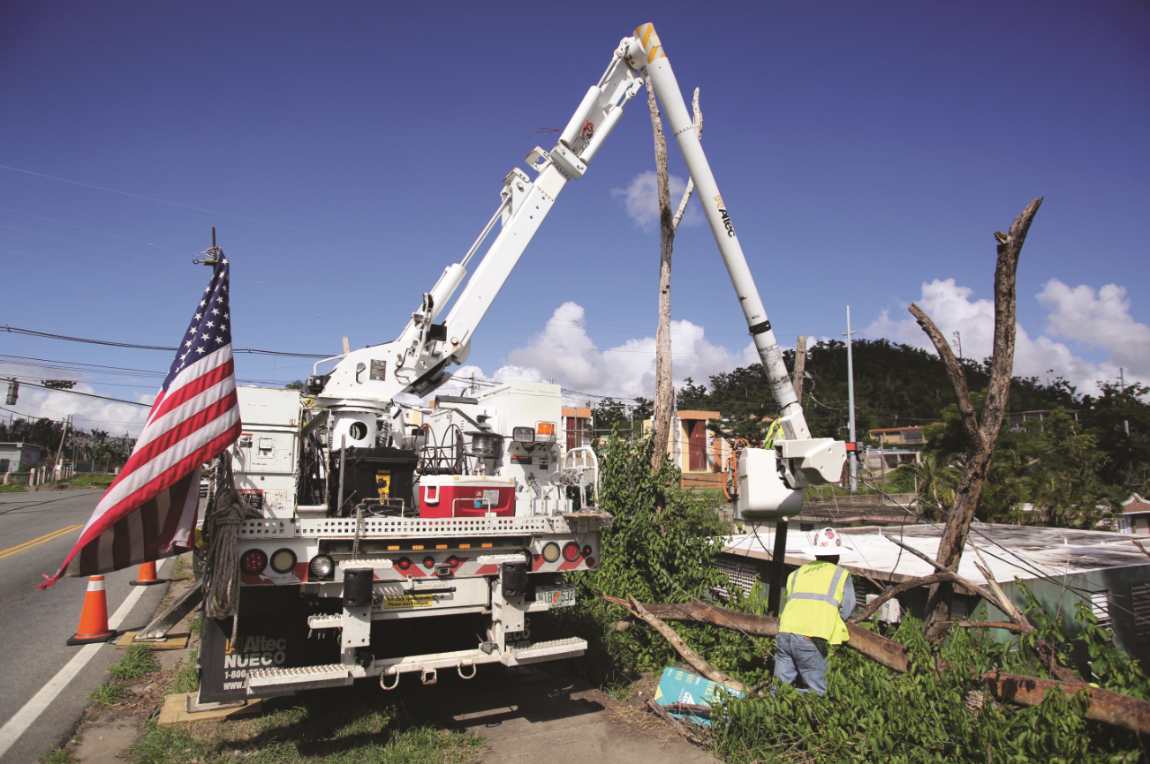

An electric utility crew from the mainland works on a line more than three months after Hurricane Maria cut it.
Next year, groups of Longwood students will travel to Puerto Rico—a Caribbean territory that has been the subject of intense debate since a devastating hurricane struck the island in September 2017.
While there, they will ponder the question of what responsibilities the United States has to its territories—and, by extension, broader, interdisciplinary questions about what it means to be American and the nature of our compact with one another as citizens.
The course is the newest Brock Experience, a growing series of immersive, citizenship- focused courses at sites around the United States made possible by a $5.9 million gift from Joan ’64 and Macon Brock in 2016. This latest offering—complementing nearly a half-dozen other Brock courses already existing or in the pipeline—will be developed by Dr. Melanie Marks, professor of economics. Receiving the two-year faculty fellowship to develop a Brock Experience is one of the top honors for a Longwood professor.
There are no easy answers to the questions surrounding the status of Puerto Rico—and that’s a big part of what defines a topic for a Brock experience. On the ground, Longwood students will interview Puerto Rican residents about their perceptions, visit local schools and businesses, and talk with officials to explore these questions more fully and dive into the civic—and uniquely American—debate.
'Before Hurricane Maria, many were unaware that Puerto Ricans are citizens of the United States.'
DR. MELANIE MARKS, PROFESSOR OF ECONOMICS Tweet This
At no time was the issue of the United States’ responsibilities to its territories in higher relief than when Hurricane Maria, a Category 5 storm, took deadly aim at Puerto Rico, devastating the island. Storm damage was estimated at more than $8 billion. Recovery has been slow and beset by numerous problems, both political and structural.
On the U.S. mainland, a debate played out in the press over what the responsibility of the United States government was to the citizens of Puerto Rico, amid some misconceptions about the role of the territory in American society and government.
“Before Hurricane Maria, many were unaware that Puerto Ricans are citizens of the United States,” Marks wrote in her proposal. “Puerto Ricans travel freely to the mainland, pay Social Security taxes, participate in Medicare and are subject to federal law. Yet they have their own constitution, no electoral votes in presidential elections and Congressional representation is nonvoting.”
